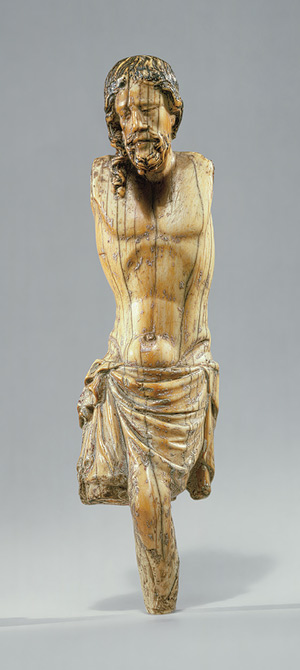In the musical, Les Miserables, Fantine sings “I Dreamed a Dream.” The song is the story of how her life went astray, how her path became so muddled that she lost her way. Listen to a few of the lyrics:
I dreamed a dream in time gone by
When hope was high and life worth living
I dreamed that love would never die
I prayed that God would be forgiving
Then I was young and unafraid
And dreams were made and used and wasted
There was no ransom to be paid
No song unsung, no wine untasted
But the tigers come at night
With their voices soft as thunder
As they tear your hopes apart
And they turn your dreams to shame
But there are dreams that cannot be
And there are storms we cannot weather
I had a dream my life would be
So different from this hell I’m living
So different now from what it seemed
Now life has killed the dream I dreamed
Our life and the living of it leaves indelible marks on all of us. Most of us have survived terrible loss and pain – these “Days of the Lord” that Peter quotes from the book of Joel – days that changed our lives forever, turned our hopes upside down, left a space within us that rattles with broken dreams.
Our three passages today find the people of God in the same place – some of them are bitter, some resentful, some confused. In John, the disciples are huddled together in a locked room, waiting for the other shoe to drop, waiting for the same people who killed Jesus three days earlier to come after them. In Acts, the disciples are huddled once again, but this time in public ten days after Jesus leaves them once again, disappearing in a cloud without a word as to what comes next. And in Corinthians, the brand new church is torn apart by resentment and bickering, scandals and cliques. The dream of the church, begun in the disciples, fulfilled on the Pentecost, seemed to be ending before it really began.
In all three passages the answer to their disillusionment is the same: One God, one Christ, one Spirit with us, in us, through us, always – a promise to always and everywhere and in every situation have the gift of God’s Spirit, as close as the breath we breathe.
Our failure and lostness doesn’t keep God’s Spirit from us. The loss of our dreams doesn’t chase it away. See the disciples hidden in a locked room, filled with shame and fear, having run away and worse when Jesus faced the Sanhedrin. See a lost group of apostles wandering together aimlessly in the masses of Jews celebrating the Festival of the Pentecost. See the church in Corinth struggling to be relevant in a place where they have no power, fighting with each other over the every day minutia that is the church. Yet, in spite of it all, God trusts – and the Spirit breathes into each of them, with wind and fire, as intimate as a touch and as apocalyptic as a whirlwind.
It’s a universal call – to everyone north, east, south, and west – to everyone who is screwed up and fallen down – to everyone who is lost and wandering and angry and bitter – to everyone no matter what we have or do not have to offer, what talents we possess or don’t possess, no matter where we are in the journey.
For all of us are all of these things at one time in our lives or another. The “Day of the Lord” comes and we lose – we lose homes and people and talents and health and resources. But this Day of the Lord that is this Pentecost is a day that doesn’t bring devastation with wind and fire – the very wind and fire that comes brings hope, it brings the Spirit of God to us. While all manner of things may change around us, while we change in drastic ways, while our opportunities and our abilities change – we live in a forever Pentacost. The body of Christ still needs us all.
The church needs our dreams wherever we are, however we are, with whatever gifts we have to offer. On this the birthday of the church, what will your gift to the Body of Christ be? Our gifts vary from year to year, decade to decade. They evolve, change – we may teach one year, help a homeless ministry the next; we may collect goods for needy students one year, make meals for families in crisis the next; we may lead youth one year, arrange flowers the next. And for some of us, we do all of these at once! It’s not what you can’t do – it’s is always about what you can, with whatever you have, here and now.
I think of this especially with the recent commemoration of the 70th anniversary of D-Day. The Allied invasion required the coordinated effort of 5,000 ships, 11,000 aircraft, and over 150,000 service men from 12 countries – all without computers or cell phones. The first men to hit the shore on June 6th, 1944 paved the way for the next wave of men, paved the way for the following days to secure the beach, paved the way for the coming months to push into Rhineland, and paved the way for the following year as the Allied troops, together fought shoulder to shoulder toward the goal of a free Europe. Every soldier was needed, and some never saw the fruition of the dream as entire companies were reduced to a few survivors and were constantly replenished by new recruits week after week. With such massive turnover, individual roles changed, tactics shifted, but the goal was always the same: one force trying to save the world.
The goal of the church hasn’t changed since its birth two thousand years ago. We’ve been sent to change the world for the better by loving God and loving our neighbor. Our roles change constantly, how we show love and encourage peace changes with every seismic shift in our culture. We pave the way for those who follow us, because the Kingdom of Heaven is always at hand – at our hands. Everyone of us is needed – our sons and daughters to prophesy, our young people to see visions, our not-so-young people to dream dreams. Because even on the least of us, the Spirit is poured out, the Spirit is poured in. The body of Christ is not complete without us all. While we have breath in our body, the Spirit still calls us in a language only we can understand, to whatever we can so that we become a part of something greater than ourselves – one people taking one step closer to the Kingdom of God.
Amen.
Preached June 8, 2014 at the Hermitage on Acts 2:1-21, I Corinthians 12:1-15, John 20:19-23)



Average Rating